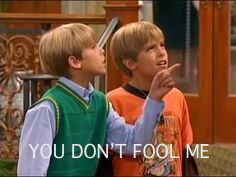
Who cares if all my references come from the 90s and early 00s? It was a simpler, more beautiful time
So you’re worried about the second test. First of all, I completely understand. Even as someone who became a TA, I was terrified of the tests in this class (to be fair, I’m more of an essay person so it’s me, not you, tests). That said, once you get used to them, they’re possible. These tests are going to challenge you to think and apply knowledge, but it is possible to succeed. I’ll say right now that there are no shortcuts, but there are strategies.
- Go to class and pay attention. I know, right? Isn’t that such an eye-roll piece of advise? Thing is, it’s one of the best ways to do well on the tests. Andrew wants to test how well you know the important concepts and how to apply them. If you understand that, then you’ll be great.
 If your next thought is, but I do and I still bombed, then the next advice is to pay attention to the test’s rhetoric. One important principle in science is the lack of complete certainty. If you see answers that use language of complete certainty (“must, “always,” etc.), then be careful. The only thing that is absolutely certain is that chance is (almost) always an option. Conclusions of studies are either correct or due to chance. On that note about uncertainty, watch the way Andrew phrases questions. Words like “could,” “should,” and the like broaden the scope. It’s not always about what it is, it’s about what it could be. (Example: some questions try to put you in the middle of an historical scientific experience when you wouldn’t necessarily know what the real results are. Instead, he wants you to think about the possibilities–thinking about possibilities is a must when it comes to scientific discoveries).
If your next thought is, but I do and I still bombed, then the next advice is to pay attention to the test’s rhetoric. One important principle in science is the lack of complete certainty. If you see answers that use language of complete certainty (“must, “always,” etc.), then be careful. The only thing that is absolutely certain is that chance is (almost) always an option. Conclusions of studies are either correct or due to chance. On that note about uncertainty, watch the way Andrew phrases questions. Words like “could,” “should,” and the like broaden the scope. It’s not always about what it is, it’s about what it could be. (Example: some questions try to put you in the middle of an historical scientific experience when you wouldn’t necessarily know what the real results are. Instead, he wants you to think about the possibilities–thinking about possibilities is a must when it comes to scientific discoveries). Organize your notes. Not only should review your notes and pop quizzes, try keeping them in chronological order (because that’s also the order of topics building on one another) in the same place like a binder or three-ring folder that you can easily flip through during the exam. Think about reviewing your notes and marking with a different colored pen or a highlighter what those big idea concepts are. Maybe write down better explanations of concepts that you struggled with the first time around.
Organize your notes. Not only should review your notes and pop quizzes, try keeping them in chronological order (because that’s also the order of topics building on one another) in the same place like a binder or three-ring folder that you can easily flip through during the exam. Think about reviewing your notes and marking with a different colored pen or a highlighter what those big idea concepts are. Maybe write down better explanations of concepts that you struggled with the first time around.- These tests are cumulative, so remember to study the information and slides from the first test.
- Take notes during the test. I really recommend writing down your answers on a separate sheet of paper. Also mark questions about which you’re uncertain (circling is a favorite of mine) and consider writing down the other options you were considering. That way a) you might be able to figure out which ones you got wrong the first time and fix it the second time and b) you can explain your thought-process during a review session, which will help Andrew know how to explain concepts better to you (especially those really tough, intricate questions).
 Go to the review sessions and/or ask for help reviewing your past tests. Understanding what you struggled with is the best way that you can avoid struggling in the future. Along the same line of logic, make sure to clarify concepts that you don’t understand in lecture by asking Andrew/us after class for further explanation. If you’re fuzzy on it in class, that will amplify and worsen as you take the tests.
Go to the review sessions and/or ask for help reviewing your past tests. Understanding what you struggled with is the best way that you can avoid struggling in the future. Along the same line of logic, make sure to clarify concepts that you don’t understand in lecture by asking Andrew/us after class for further explanation. If you’re fuzzy on it in class, that will amplify and worsen as you take the tests. Avoid distractions. Take the test on your own in a quiet place. Seriously, background noise/music/anything else that is audio will hurt and interrupt your concentration.
Avoid distractions. Take the test on your own in a quiet place. Seriously, background noise/music/anything else that is audio will hurt and interrupt your concentration.- Review your answers before you submit your test (even the ones you think are a slam dunk). Not reviewing is what increases the chance that those tricky rhetoric questions will, you know, trick you.
- Take each test. Not only do you learn more through application, you also increase the chance that you’ll improve your overall grade. Remember, you have the opportunity to improve without penalization because Andrew only counts your best efforts. That said, you can’t make your best efforts unless you put time and energy into every test and blog period.
 That leads into the last gemstone I’ve got: I know that with general education classes, it’s easy and convenient to put in the minimum (or nothing). You can’t do that with this class. This class requires serious thought and energy. Again, I get why that can be frustrating as you try to focus on the classes for your major. Understand that this is the reality; if you want to get a good grade, you have to work hard.
That leads into the last gemstone I’ve got: I know that with general education classes, it’s easy and convenient to put in the minimum (or nothing). You can’t do that with this class. This class requires serious thought and energy. Again, I get why that can be frustrating as you try to focus on the classes for your major. Understand that this is the reality; if you want to get a good grade, you have to work hard.
Good luck guys! Please email us if you have questions before the exam!



